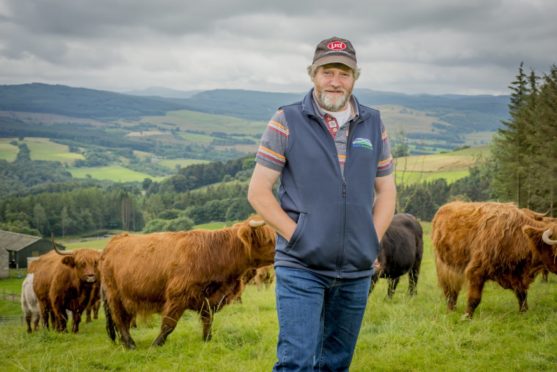The chief of Scotland’s farming union has accused the European Commission of closing the door to any further post-Brexit trade negotiations with the UK.
NFU Scotland (NFUS) president, Martin Kennedy, made the comments following a meeting with European farmers’ unions body Copa-Cogeca, where he spoke with European Commission officials.
“I was left in absolutely no doubt that the whole Brexit saga is far from over,” said Mr Kennedy, writing on the NFUS blog.
“It was blatantly obvious, given the response from the commission to questions, that Brexit was a UK decision and therefore the UK will have to face the consequences for any friction in trade or checks.”
He said NFUS had the “door firmly closed in our face” despite attempts to discuss economically important trade matters for Scottish farmers, such as the seed potato export ban and live animal trade between Scotland and Northern Ireland.
“Even calls from other EU farming unions who are deeply concerned about their exports to the UK after January 2022 made absolutely no difference,” added Mr Kennedy.
He said the union’s focus would now be on lobbying the UK Government to ensure the January 2022 date for physical checks on export certificates and standards paperwork for products coming into the UK from Europe is not further delayed – it has already been pushed back from October this year.
“Asymmetrical trade is bad enough, but asymmetrical friction means there’s nothing at the minute to bring the commission as products coming in here from the EU continue to do so pretty much friction free,” said Mr Kennedy.
“Once businesses in Europe begin to realise the delays and costs that we are facing, then and only then will there be lobbying from industry on the EU side to make the Commission see sense.”
